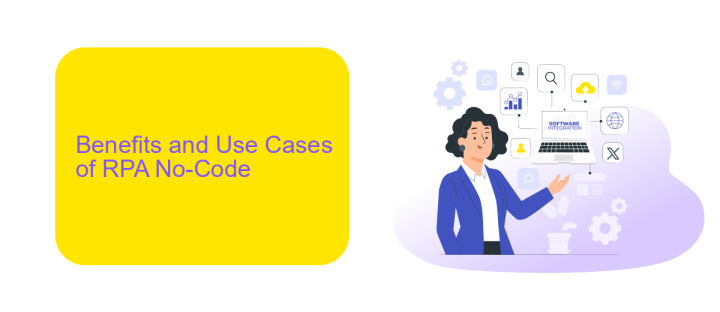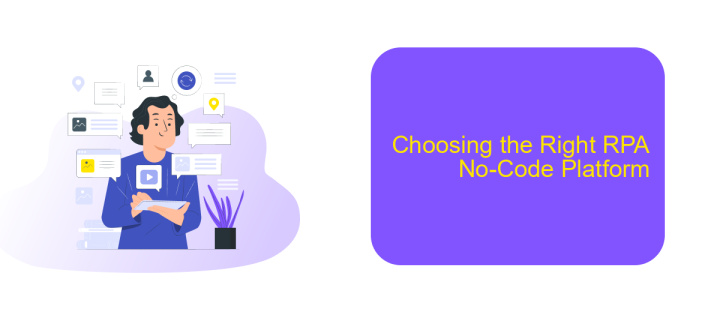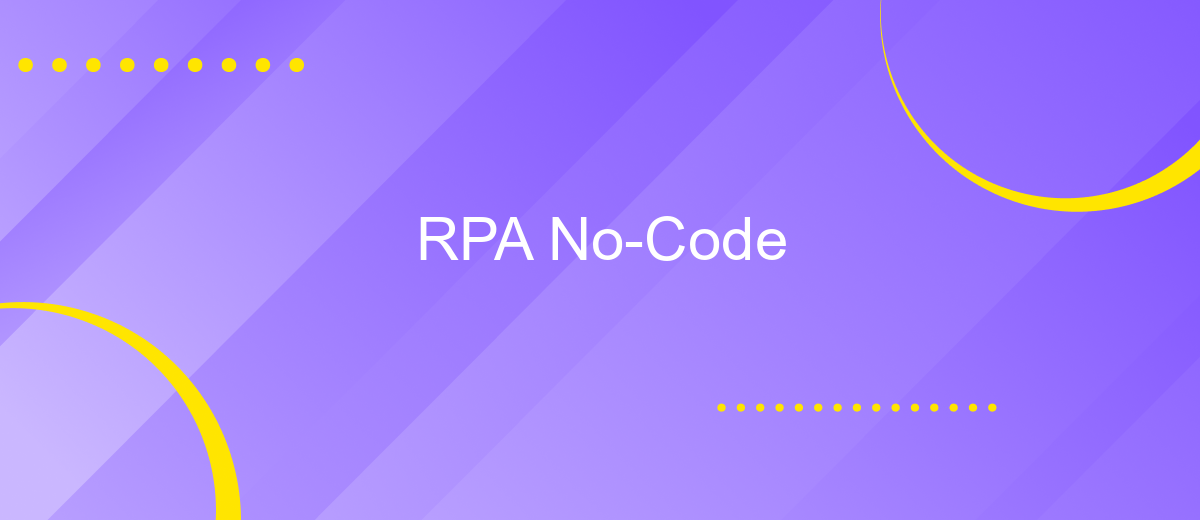RPA No-Code
Robotic Process Automation (RPA) has revolutionized business operations by automating repetitive tasks. With the advent of no-code platforms, even non-technical users can now create and deploy RPA solutions without writing a single line of code. This democratization of RPA technology is enabling businesses of all sizes to enhance efficiency, reduce errors, and lower operational costs.
Introduction to RPA No-Code
Robotic Process Automation (RPA) No-Code solutions empower businesses to automate repetitive tasks without the need for extensive programming knowledge. These tools are designed to be user-friendly, allowing even those with minimal technical expertise to create and deploy automated workflows efficiently.
- Ease of Use: Intuitive drag-and-drop interfaces.
- Cost-Effective: Reduces the need for specialized development teams.
- Scalability: Easily adaptable to growing business needs.
- Integration: Seamlessly connects with various applications and services.
One of the key advantages of RPA No-Code platforms is their ability to integrate with other systems effortlessly. For instance, ApiX-Drive offers a robust solution for setting up integrations between different applications, enhancing the automation capabilities of RPA tools. By leveraging such services, businesses can streamline their processes, increase productivity, and reduce operational costs.
Benefits and Use Cases of RPA No-Code

RPA No-Code offers numerous benefits, making it an attractive option for businesses looking to streamline operations. One of the key advantages is its accessibility; even those without programming expertise can automate complex processes. This democratization of technology leads to increased efficiency, reduced errors, and cost savings. Additionally, RPA No-Code tools are often highly scalable, allowing organizations to start small and expand automation efforts as needed. The ease of use and rapid deployment also mean that businesses can quickly adapt to changing market conditions, maintaining a competitive edge.
Use cases for RPA No-Code span various industries and functions. In finance, it can automate invoice processing and compliance reporting. In customer service, chatbots and automated responses enhance user experience. Marketing teams can benefit from automated campaign management and data analysis. Integration services like ApiX-Drive facilitate seamless connections between different software applications, further extending the capabilities of RPA No-Code solutions. By leveraging these integrations, businesses can create more cohesive and efficient workflows, ultimately driving greater productivity and innovation.
Key Features and Capabilities of RPA No-Code Platforms

RPA No-Code platforms offer a range of features that enable businesses to automate processes without the need for extensive programming knowledge. These platforms are designed to be user-friendly and accessible to non-technical users, providing intuitive interfaces and drag-and-drop functionalities.
- Visual Workflow Design: Users can create and modify workflows using visual editors, eliminating the need for coding.
- Pre-built Templates: These platforms come with a library of pre-built templates to streamline common business processes.
- Integration Capabilities: Seamless integration with various applications and services, such as ApiX-Drive, allows for efficient data transfer and process automation.
- Scalability: Easily scale automation efforts as business needs grow, without significant additional investment.
- Real-time Analytics: Monitor and analyze automated processes in real-time to ensure optimal performance and identify areas for improvement.
By leveraging these key features, businesses can significantly improve operational efficiency, reduce human error, and free up valuable resources for more strategic tasks. The integration capabilities, particularly with services like ApiX-Drive, further enhance the flexibility and reach of RPA No-Code platforms, making them a valuable asset for any organization.
Choosing the Right RPA No-Code Platform

Choosing the right RPA No-Code platform is crucial for the success of your automation initiatives. With a plethora of options available, it's essential to evaluate each platform based on several key factors. The right platform should align with your business needs, technical capabilities, and future growth plans.
Firstly, consider the ease of use. A user-friendly interface allows non-technical staff to create and manage automation workflows efficiently. Secondly, evaluate the platform's scalability and flexibility to ensure it can grow with your business. Thirdly, integration capabilities are vital for seamless operations across different systems.
- Ease of Use: Look for intuitive drag-and-drop features and comprehensive documentation.
- Scalability: Ensure the platform can handle increasing workloads and complexity.
- Integration Capabilities: Platforms like ApiX-Drive offer robust integration options to connect with various tools and services effortlessly.
Lastly, consider the cost and support services offered by the platform. A cost-effective solution with excellent customer support can significantly enhance your automation journey. By carefully evaluating these factors, you can select an RPA No-Code platform that best suits your organizational needs.
- Automate the work of an online store or landing
- Empower through integration
- Don't spend money on programmers and integrators
- Save time by automating routine tasks
Best Practices and Implementation Tips for RPA No-Code
When implementing RPA No-Code solutions, it is crucial to start with a clear understanding of the processes you aim to automate. Identify repetitive tasks that consume significant time and resources, and prioritize them for automation. Ensure that your team is adequately trained to use the no-code platforms, as this will maximize the efficiency and effectiveness of your RPA implementation. Additionally, always test your automated workflows in a controlled environment before full deployment to avoid disruptions.
Integration is another critical aspect of RPA No-Code implementation. Utilize services like ApiX-Drive to seamlessly connect various applications and data sources without the need for complex coding. ApiX-Drive offers a user-friendly interface that simplifies the integration process, allowing you to focus on optimizing your automated workflows. Regularly monitor and update your RPA processes to adapt to any changes in your business environment, ensuring that your automation efforts continue to deliver value over time.
FAQ
What is RPA No-Code?
How can RPA No-Code benefit my business?
Is it necessary to have technical expertise to use RPA No-Code tools?
Can RPA No-Code tools integrate with other software applications?
What are some common use cases for RPA No-Code?
Do you want to achieve your goals in business, career and life faster and better? Do it with ApiX-Drive – a tool that will remove a significant part of the routine from workflows and free up additional time to achieve your goals. Test the capabilities of Apix-Drive for free – see for yourself the effectiveness of the tool.


